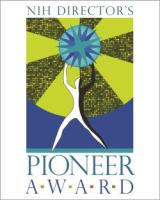2024 Awardees
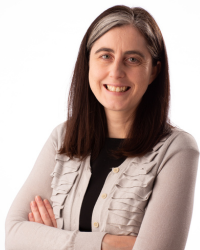
Nicola J. Allen, Ph.D.
The Salk Institute for Biological Studies
Project Title: Targeted Degradation of Extracellular Proteins to Enhance Brain Plasticity
Grant ID: DP1-NS142487
Nicola Allen is an Associate Professor at the Salk Institute for Biological Studies. Dr Allen received her PhD from University College London studying neuronal responses to ischemia in the lab of David Attwell, and performed Postdoctoral research with Ben Barres at Stanford University where she identified how astrocytes regulate functional synapse formation. Dr Allen’s lab investigates how astrocytes regulate neuronal synapse number and function across the lifespan, with a focus on extracellular proteins produced by astrocytes that regulate neuronal state. The goal of the Allen lab is to use this knowledge of astrocytes to develop novel approaches to repair synapses when they are dysfunctional in diverse neurological disorders. Dr Allen has been recognized with a number of awards, including an NIH Director’s Pioneer Award, a Pew Scholar, an Ellison Scholar in Aging, and a Career Accelerator Award from CZI.
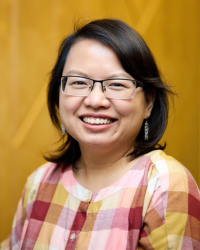
Hong Chen, Ph.D.
Washington University in St. Louis
Project Title: Ultrasound-Induced Artificial Hibernation: Mimicking Natural Hibernation to Enhance Human Health
Grant ID: DP1-DK143574
Dr. Hong Chen’s research group works to advance the field of NeuroSonics by integrating breakthroughs in neuroscience and ultrasonics to develop noninvasive ultrasound technologies that deepen our understanding of brain function and transform the diagnosis and treatment of neurological diseases. Her NIH Pioneer Award seeks to develop an ultrasound-induced artificial hibernation technique based on the bold hypothesis that neural pathways regulating metabolism are conserved across mammals and can be activated via ultrasound. Dr. Chen earned bachelor’s and master’s degrees in biomedical engineering from Xi’an Jiaotong University, followed by a PhD in bioengineering from the University of Washington, and completed postdoctoral training at Columbia University. She is currently an Associate Professor in the Department of Biomedical Engineering at the McKelvey School of Engineering and the Department of Neurosurgery at the School of Medicine at Washington University in St. Louis. More information about her research can be found at https://chenultrasoundlab.wustl.edu/
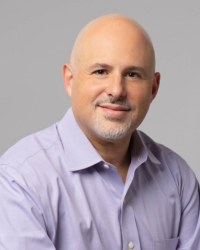
Zemer Gitai, Ph.D.
Princeton University
Project Title: A Single-Cell Approach to Developing Non-Traditional Antibiotics
Grant ID: DP1-AI190418
Zemer Gitai is the Edwin Grant Conklin Professor in the Department of Molecular Biology at Princeton University. He graduated with a bachelor's degree from MIT in 1996, completed his graduate studies at UCSF in 2002, was a postdoc in the lab of Dr. Lucy Shapiro at Stanford University, and joined the Department of Molecular Biology at Princeton University in 2005. Dr. Gitai was promoted to Associate Professor with tenure in 2012 to Professor in 2015, and became Princeton University's Edwin Grant Conklin Distinguished Professor of Biology in 2016. His group focuses on bacterial cell biology, host-pathogen interactions, and antibiotic development with an emphasis on quantitative method development.
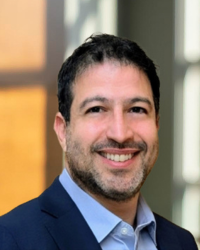
Adam Kepecs, Ph.D.
Washington University School of Medicine in St. Louis
Project Title: The Cytokine Code and Neural Circuits for Sensing Inflammation State
Grant ID: DP1-MH140021
Adam Kepecs is the Robert J. Terry Professor of Neuroscience, Professor of Psychiatry, and BJC Investigator at Washington University School of Medicine in St. Louis. He earned degrees in math and computer science in Budapest, a neuroscience PhD from Brandeis University, completed postdoctoral work at Cold Spring Harbor Laboratory, and joined the faculty there, eventually becoming a full professor and neuroscience program chair before moving to WashU in 2020. His team pioneered cross-species computational approaches to cognition, revealing neural mechanisms of decision confidence and hallucinations. They combine neural circuit mapping, monitoring, and manipulations with computational modeling to understand the mechanisms and principles by which the brain governs emotion, cognition, and behavior. His long-term goal is to reverse-engineer brain processes to advance psychiatry, recently expanding to probe brain-body interactions, particularly how the brain senses and influences immune states.
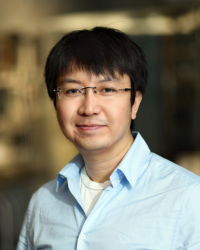
Nuo Li, Ph.D.
Duke University
Project Title: Neural Control of Rhythmic Orofacial Movements
Grant ID: DP1-NS142432
Nuo Li is an Associate Professor of Neurobiology at Duke University. He did his PhD work with Jim DiCarlo at MIT studying neural mechanisms of invariance visual object recognition in non-human primates. For his postdoctoral work with Karel Svoboda at Janelia Research Campus, he developed tools and methods to study the circuit mechanisms of decision-making in mice. The Li lab developed tools to study brain-wide neural circuits in the mouse supporting decision-making and motor control. His long-term goal is to produce a holistic understanding of how neural circuits produce volitional movements that will provide a roadmap for treating movement disorders.
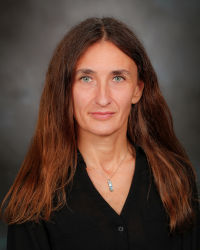
Silvia Mangia, Ph.D.
University of Minnesota Medical School
Project Title: Obtaining Brain pCO2, pH and pO2 Maps Via Measurements of Neurovascular Coupling: A Novel Non-Invasive Approach to Identify the Culprits of Loss of Brain Function
Grant ID: DP1-AG093028
Silvia Mangia is a Professor of Radiology at the University of Minnesota Medical School. She obtained her PhD in Biophysics at the University of Rome La Sapienza in 2003 and has been working at the Center for Magnetic Resonance Research at the University of Minnesota since 2004. Among her major research achievements, she pioneered the use of functional Magnetic Resonance Spectroscopy and zero echo-time functional MRI at ultra-high magnetic field to elucidate the metabolic and hemodynamic events accompanying neuronal activation. By combining the in vivo information attainable by advanced neuroimaging modalities within innovative conceptual frameworks of neurometabolic and neurovascular couplings, her program seeks to understand the cell-to-cell interactions necessary to support neuronal processing, and how their disruption can mechanistically lead to loss of brain function.

Denise Montell, Ph.D.
University of California, Santa Barbara
Project Title: RaceCAR-M Immunotherapy for Cancer and Beyond
Grant ID: DP1-CA300850
Denise Montell earned a B.A. in Cell Biology from the University of California, San Diego and a Ph.D. in Neuroscience from Stanford University, followed by two years of postdoctoral training at the Carnegie Institution, where she then advanced to an independent Staff Associate position. She then became an Assistant Professor of Biological Chemistry at the Johns Hopkins School of Medicine, where she rose to Full Professor and Founding Director of the Center for Cell Dynamics. After 20 years at JHUSOM, she returned to her University of California roots, accepting the position of Duggan Professor of Molecular, Cellular, and Developmental Biology at UCSB. Montell has served on the NIGMS and American Cancer Society Councils, the NCI Board of Scientific Counselors and is an elected fellow of the American Society for Cell Biology and the American Association for the Advancement of Science, and a member of the US National Academy of Sciences.
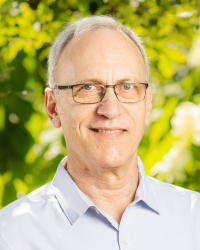
Ken A. Paller, Ph.D.
Northwestern University
Project Title: Micromanaging Human Sleep Physiology to Treat Sleep Apnea and Other Disorders
Grant ID: DP1-HL179370
Ken Paller holds the James Padilla Chair in Arts & Sciences in the Department of Psychology at Northwestern University in Evanston, Illinois, where he also directs the Cognitive Neuroscience Program in the Weinberg College of Arts & Sciences. Following undergraduate and graduate training at UCLA and UCSD, respectively, his research has pursued many questions about the human mind, memory, sleep, and conscious experience. He has sought to uncover how memories are formed, stored, and later re-experienced — as well as how they can unconsciously influence our thoughts and actions. He has also worked on developing methods to strategically influence the mind during sleep, which in turn can improve many aspects of the waking mind, including memory, creativity, and psychological well-being. He collaborates with Tibetan Monastic Scholars in related research and training, and in multiple collaborations with students and scientists around the world, he explores ways to fine-tune the activity of the brain during sleep to improve people’s lives.


